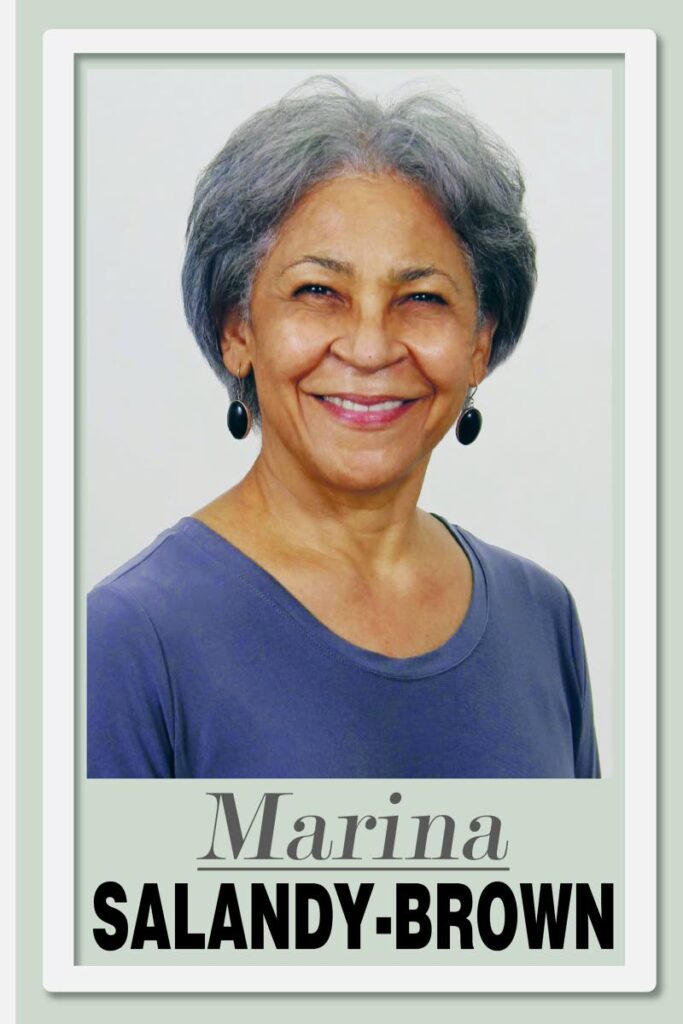A time of change

Four Days to Change the World is the enigmatic title of the 2022 NGC Bocas Lit Fest, TT’s annual literary festival and the largest of its kind in the Anglophone Caribbean, which will take place virtually April 28-May 1.
Despite what the uninitiated might think, the festival is not a literary talkshop for novelists and book lovers. It celebrates books and authors and creates opportunities for new writers, but it also tries to do what books do, which is to explore issues that touch people’s lives.
At the heart of the festival’s focus on change is a “Big Idea” panel discussion that brings together climate scientists and sustainable development activists to explore what “A future we can live with” might look like for the Caribbean. It’s a big idea, indeed, and a troublesome one because we will never agree and, for the most part, we will not have a say in the biggest changes to our lives and mores. Change will just present itself, such as the sudden remaking of the world order as a result of the Russian invasion of Ukraine. That very difficult-to-resolve war of attrition will drag on, each party trying to raise its stock on the battlefield to strengthen its position at the negotiating table. Meanwhile, European countries, and others, are being forced to reconfigure their economies, politics and national ideologies. Germany has already altered its post-WWII policy on defence spending. There will be consequences further down the road that will introduce further change.
Perhaps the biggest challenge for us all, notwithstanding the irresistible and far-reaching international repercussions of the Russian war in Ukraine, is global warming. And, the concept of sustainability has become synonymous with it. A pessimist might argue that we have been slow to grasp the idea that human activity could harm the planet and to realise that consumerism had to be controlled for the same reason, quite apart from what it does to our social psyche.
An optimist might think the opposite, that the change away from the reckless use of natural resources and human labour has been rapid. It must have been in the 1970s when I and many others became aware of both those particular concerns through a small UK High Street venture in social activism. The Body Shop, an attractive British skin care products shop full of novelties that were responsibly sourced and sustainably produced by exotic people, probably poor, in what was then called Third World countries quietly educated the public, and branches spread all over Britain and internationally, making its entrepreneurial and far-sighted founder, Anita Roddick, an extremely rich lady.
Since early this century, ESG – environmental, social and governance – matters have been rising to the top of the business agenda, including in TT. Republic Bank is leading the way in creating an Office of Sustainability to develop and implement ESG strategies that are in line with global benchmarking for organisational accountability, profitability, efficiency and longevity. ESG concerns and also the investment risk associated with global warming have grown quickly, I believe, considering the huge size of the problem. Hardly anyone now argues that we should do nothing about rising temperatures and sea levels, given the irrefutable evidence of a possible dystopian future if we stumble, but the Russia-Ukraine war has set us back immensely in every single way. All economies are suffering, despite what our Minister of Finance says about a bright future for TT. It is foolhardy for us as a country not to be more engaged with big world developments, even if it seems like globalisation is in retreat. It is still the only act in town, for the moment, at least.
Each citizen should be taught how to practise sustainable behaviour. The people of this country are spoilt rotten, they behave like rich kids, oblivious to the realities of life. They complain about paying a fraction of the real price of gasoline and about having a university education. They are lured by politicians, who politicise everything, into misguided ideas about their entitlements and not a word about their responsibilities. That is highly unsustainable.
If people are not on PAYE, as probably the majority are not since they are in the informal economy, they pay no taxes. Then they have their transport (mostly free if over 60) subsidised, their housing and electricity, too; health services are free, and education up to age 18. In addition, TT must be the most untaxed country in the developed world. We enjoy a ridiculously lenient tax regime with low-income taxes, no property, capital gains, inheritance, or road taxes, free street parking, and land grabbing is condoned. VAT might be the only contribution everyone makes to this country’s financial welfare, yet those very people are vociferous in their demands, while the rich snigger quietly at their own good luck. A future we can live with needs to be real, not the cloud cuckoo land we inhabit now. One change within our grasp is growing a more responsible citizenry, able to confront the future. Catch the festival: www.bocaslitfest.com


Comments
"A time of change"